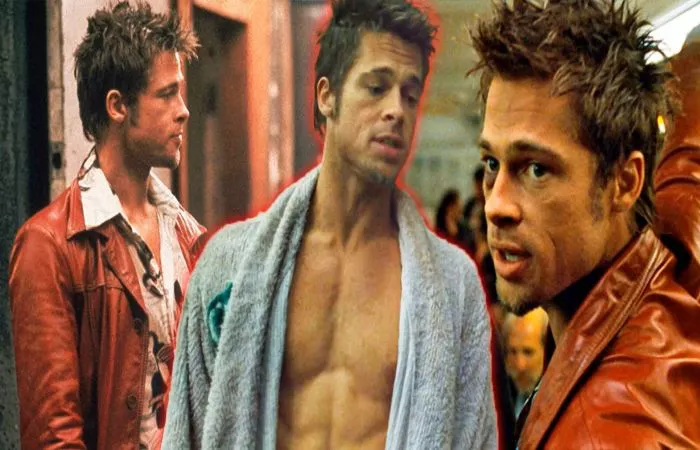“Fight Club,” directed by David Fincher and based on Chuck Palahniuk’s novel, is a film that has sparked considerable controversy since its release in 1999. From its subversive themes to its graphic content, “Fight Club” challenges societal norms and provokes intense reactions from viewers and critics alike. In this analysis, we explore the reasons behind the controversy surrounding “Fight Club” and its enduring impact on popular culture.
1. Subversive Themes and Anti-Establishment Message
One of the primary reasons “Fight Club” is controversial is its subversive themes and anti-establishment message. The film critiques consumerism, materialism, and societal conformity, presenting a nihilistic perspective on modern life. Tyler Durden, the charismatic antagonist, becomes a symbol of rebellion against the soulless monotony of corporate existence.
The film’s celebration of violence as a means of catharsis and self-discovery challenges conventional morality, prompting viewers to question the ethical implications of the characters’ actions. “Fight Club” rejects traditional notions of heroism and instead champions anti-heroic figures who defy societal norms.
2. Graphic Content and Disturbing Imagery
“Fight Club” contains graphic content and disturbing imagery that push the boundaries of conventional filmmaking. The brutal fight scenes, characterized by visceral choreography and unflinching violence, provoke visceral reactions from audiences. The film’s depiction of physical and psychological trauma is unapologetically raw, eliciting discomfort and unease.
Certain scenes, such as the infamous “chemical burn” sequence, are intentionally provocative and designed to challenge viewers’ tolerance for graphic content. The film’s unapologetic portrayal of pain and suffering contributes to its controversial reputation and polarizing reception.
3. Philosophical and Existential Themes
At its core, “Fight Club” explores profound philosophical and existential themes that resonate with viewers on a deeper level. The film confronts existential angst, identity crisis, and the quest for meaning in a world devoid of authenticity. Tyler Durden’s nihilistic philosophy, encapsulated by the mantra “You are not your job, you’re not how much money you have,” challenges viewers to reassess their priorities and values.
The film’s existential inquiries into the nature of selfhood and consciousness provoke intellectual discourse but also unsettle viewers who may find comfort in conventional belief systems. “Fight Club” blurs the line between morality and amorality, inviting controversy through its provocative exploration of human nature.
4. Interpretive Ambiguity and Moral Ambivalence
“Fight Club” is deliberately ambiguous in its narrative construction, leaving key elements open to interpretation. The film’s unreliable narrator and nonlinear storytelling complicate viewers’ understanding of the characters’ motivations and actions. This interpretive ambiguity invites diverse readings of the film’s thematic content but also frustrates audiences seeking clear-cut moral resolutions.
The moral ambivalence of “Fight Club,” characterized by the protagonists’ morally questionable behavior and nihilistic worldview, challenges viewers’ ethical sensibilities. Some critics argue that the film glorifies violence and irresponsibility, while others interpret it as a cautionary tale about the dangers of unchecked individualism.
5. Cultural Impact and Legacy
Despite—or perhaps because of—its controversial nature, “Fight Club” has left an indelible mark on popular culture and continues to influence filmmakers and audiences. The film’s cult following and enduring legacy attest to its significance as a provocative work of art.
“Fight Club” has inspired academic discourse, fan theories, and reinterpretations, demonstrating its cultural impact beyond its initial reception. As viewers revisit the film and engage in critical analysis, they uncover new layers of meaning and relevance in its subversive themes.
Conclusion: The Legacy of “Fight Club”
In conclusion, “Fight Club” remains controversial because it challenges societal norms, embraces provocative themes, and invites viewers to confront uncomfortable truths about the human condition. David Fincher’s uncompromising direction and Chuck Palahniuk’s incisive storytelling combine to create a film that defies easy categorization.
“Fight Club” continues to provoke discussion and debate, sparking conversations about violence, consumerism, and existential crisis. Its enduring legacy as a cult classic underscores its impact on popular culture and its ability to resonate with audiences seeking thought-provoking cinema.
Ultimately, the controversy surrounding “Fight Club” reflects its status as a boundary-pushing work of art that refuses to conform to conventional expectations. As viewers grapple with its provocative themes and challenging subject matter, “Fight Club” remains a testament to the power of cinema to challenge, provoke, and inspire.
Related Topics:
Explaining the Ending of “Fight Club” in Detail
5 Secrets About “Fight Club” That Only Superfans Know
Why Brad Pitt’s Style in “Fight Club” Still Packs a Punch 20 Years Later

